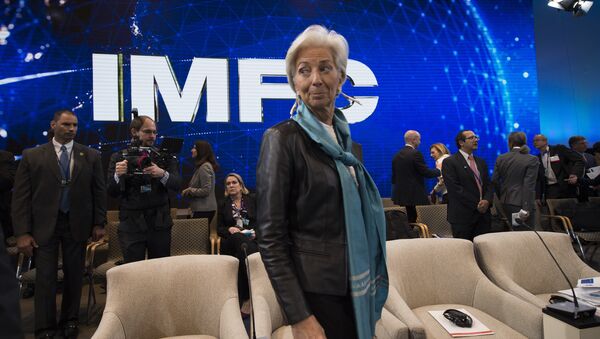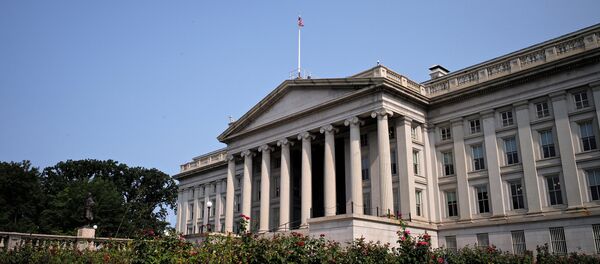The newly released International Monetary Fund's (IMF) prognosis of global economic development has undergone certain changes amid the US-China trade frictions; as a result the data of its earlier October forecast for 2018-2019 was substantially adjusted.
Commenting on the IMF's fluctuating figures, Joaquin Arriola, a professor of political economy at the University of the Basque Country, opined that "the forecasts of a monetary and credit organization increasingly resembles those of Kabbalah augurs."
"While examining the prospects of the world economy one should periodically review the figures as they change significantly. In March the IMF says one thing and in October the organization is forced to review everything because the situation has changed, therefore this is an unreliable source of information," Arriola told Sputnik.
"Perhaps, China will resort to other initiatives aimed at changing the structural framework of not only international trade relations, but also financial ones," Arriola suggested.
In the first quarter of 2018 China's economy grew at a faster pace than it initially foreseen by analysts amid strong consumer demand and active investment in real estate. GDP growth for this period amounted to 6.8 percent while analysts expected that it would be 6.7 percent. Thus, the previous quarter has become the third consecutive period with a 6.8 percent increase.
However, the IMF confirmed its forecast for China's economic growth at 6.6 percent for 2018 and 6.4 percent for 2019.
In March 2018 Trump introduced 25 percent and 10 percent tariffs on steel and aluminum imports, respectively. In April Washington has threatened to impose new tariffs on more than $150 billion worth of Chinese goods. For its part, Beijing has taken tit-for-tat steps affecting American imports.
It was reported by Reuters on April 17 that Chinese Vice-Commerce Minister Fu Ziying held meetings with the ambassadors from France, Germany, Great Britain, Spain, Italy and the European Union, apparently seeking their support to counter Trump's protectionist measures.
On April 19, Heath Tarbert, assistant Treasury secretary for international markets and investment policy, reported that the Trump administration is seeking to invoke the International Emergency Economic Powers Act (IEEPA). The 1977 legislation was largely used against "rogue regimes" and terrorist groups.
Additionally, US lawmakers are planning to expand the Committee on Foreign Investment in the US (CFIUS) to limit US-Chinese partnerships in order to prevent the transfer of advanced American technologies to China.
A day earlier, Yan Pengcheng, spokesperson for the National Development and Reform Commission (NDRC), told reporters that "China has prepared multi-level response plans and backup policies for the US-initiated trade frictions."
The views and opinions expressed by the contributor do not necessarily reflect those of Sputnik.





